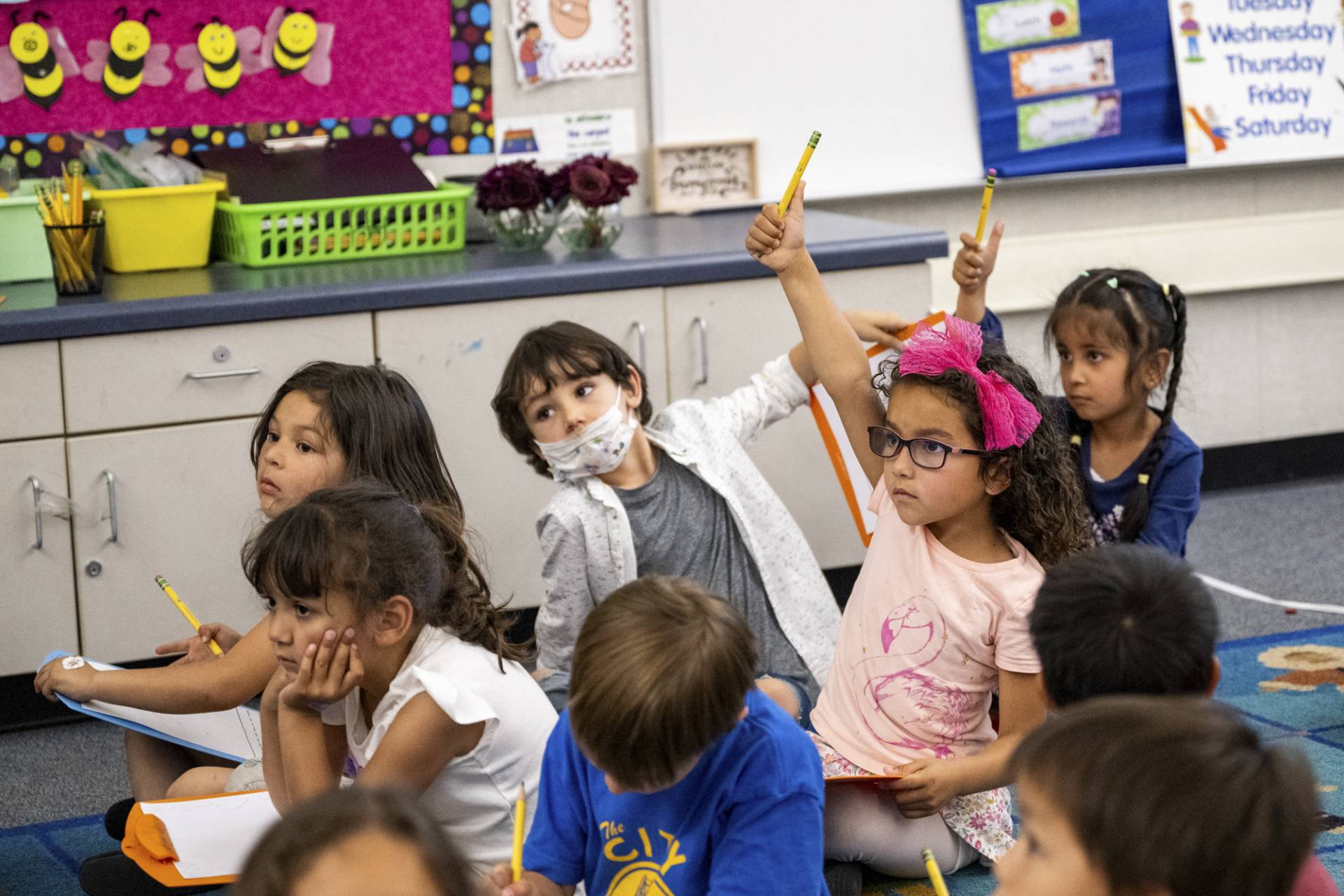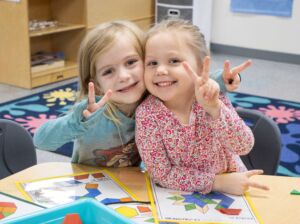The benefits of digital technology in Private Grade School Peoria
Wiki Article
Recognizing Quality College: Key Truths and Interesting Activities for Every Student
Quality institution acts as a crucial structure for trainees, blending academic learning with the development of social abilities. This period is essential for cultivating psychological knowledge and durability. Engaging activities can enhance curiosity and inspiration, yet the difficulty lies in finding the right balance. As moms and dads and teachers browse this landscape, comprehending the complex nature of grade college becomes important. What techniques can efficiently support trainees in this transformative phase?The Significance of Social Skills in Grade School
Although academic expertise is crucial, social abilities play an important function in quality college advancement. Throughout these formative years, children discover to interact with their peers, negotiate disputes, and construct friendships. Social abilities encompass a variety of competencies, consisting of efficient interaction, compassion, and synergy. These capabilities enable trainees to navigate the intricacies of social characteristics within the classroom and beyond.As children take part in group tasks and collective tasks, they develop critical social abilities that add to their emotional intelligence. This fundamental experience fosters a sense of belonging and enhances overall well-being. Additionally, youngsters that have solid social abilities often tend to experience far better scholastic end results, as they are most likely to get involved actively in discussions and seek assistance when required.

Fundamentally, the growing of social abilities during grade institution is not just valuable however critical for fostering a well-rounded person planned for future obstacles.
Stabilizing Academics and Creative Thinking
As students progress with grade school, balancing academics with imagination becomes important to their overall development. This equilibrium cultivates crucial thinking, analytical, and technology, abilities required for future success. Academic subjects provide foundational knowledge, while creative activities urge pupils to share themselves and discover originalities.Integrating creativity into the educational program can boost involvement and inspiration, enabling trainees to get in touch with the material on a much deeper degree (Grade School). Jobs that blend subjects, such as art and science, can stimulate inquisitiveness and advertise a love for discovering
Imaginative outlets like music, dramatization, and visual arts aid pupils establish emotional intelligence and strength. These experiences add to a well-rounded education and learning, preparing trainees for a rapidly transforming world.
Ultimately, focusing on both academics and imagination gears up pupils with a diverse ability, enabling them to browse difficulties and take opportunities successfully throughout their educational journey and past.
Involving Activities to Improve Understanding
Numerous engaging activities can substantially enhance discovering experiences for elementary school students. These activities not only make learning enjoyable however also aid reinforce vital concepts. Hands-on experiments in scientific research courses allow trainees to explore concepts practically, fostering curiosity and deeper understanding. Similarly, interactive storytelling sessions can enhance literacy skills while triggering creativity and creativity.Team jobs urge partnership, training pupils the importance of team effort and communication. Integrating modern technology, such as instructional games and electronic tests, can likewise mesmerize trainees' interest and make finding out more vibrant. Crafts and arts jobs can help in the advancement of fine electric motor abilities while giving an imaginative electrical outlet.
Furthermore, outdoor activities, like nature strolls or scavenger pursues, connect students with the setting and promote physical well-being. By integrating these interesting tasks right into the curriculum, teachers can produce a promoting knowing environment that accommodates diverse understanding designs and keeps trainees motivated.
The Duty of Adult Support in Education
Adult support plays a substantial function in the academic journey of quality institution students. Research suggests that when parents proactively participate in their child's education, it favorably influences academic efficiency, inspiration, and overall well-being. Kindergarten. Regular participation, whether via homework support or attending school occasions, promotes a complacency and strengthens the worth of education and learningFurthermore, reliable interaction in between moms and dads and educators improves the discovering experience. Moms and dads who team up with instructors can much better recognize their youngster's staminas and obstacles, enabling tailored support. This partnership urges accountability and establishes high expectations for students.
Additionally, parental perspectives toward education and learning substantially influence youngsters's point of views. When moms and dads demonstrate a positive outlook on discovering, it grows go to my site curiosity and resilience in their children. Eventually, the structure of adult assistance is crucial in forming pupils' perspectives, behaviors, and scholastic success throughout their grade college years.
Developing a Positive Discovering Atmosphere
Creating a positive understanding environment is important for fostering scholastic success and emotional wellness among elementary school pupils. Such an environment promotes interaction, urges cooperation, and boosts inspiration. Teachers play a considerable role in establishing this environment by implementing techniques that prioritize respect, assistance, and inclusivity.Class management practices, such as clear expectations and constructive feedback, are necessary in supporting a sense of security. Furthermore, integrating diverse teaching approaches can accommodate various finding out styles, ensuring that all students really feel valued.
Encouraging peer communications and group activities additionally grows social skills and a sense of area. Commemorating achievements, no matter just how tiny, enhances positive behavior and boosts self-confidence.
Eventually, a favorable learning atmosphere not just boosts scholastic performance however additionally promotes emotional durability, aiding students flourish both inside and outside the classroom. This foundation is significant for their overall development and lifelong knowing trip.
Approaches for Establishing Essential Thinking Abilities
Effective approaches for creating important assuming abilities in quality school consist of encouraging inquiry-based discovering and advertising analytic tasks. Inquiry-based understanding fosters curiosity and allows students to explore inquiries, while problem-solving tasks test them to apply their expertise Web Site in sensible scenarios. Together, these techniques boost students' capacity to think critically and separately.Motivating Inquiry-Based Knowing
How can educators promote a class atmosphere that promotes inquiry-based discovering? Educators can develop an atmosphere that motivates inquisitiveness by posing flexible questions and promoting conversations that trigger trainees to discover various point of views. Encouraging students to ask their very own inquiries can better boost their critical reasoning skills. Including real-world problems and hands-on activities allows trainees to engage straight with the product, promoting deeper understanding. Furthermore, supplying opportunities for collective tasks can improve peer-to-peer understanding, where trainees share understandings and build on each other's ideas. By integrating technology and resources that support expedition, teachers can aid trainees take possession of their understanding trip, consequently growing a mindset of inquiry that expands beyond the classroom.Advertising Problem-Solving Activities
While cultivating analytical tasks in the classroom, educators can substantially boost students' critical thinking abilities. By including hands-on projects, group discussions, and real-world circumstances, instructors motivate trainees to examine scenarios, identify patterns, and discover multiple remedies. Involving trainees in collective challenges not only advertises teamwork but likewise enhances their capacity to articulate reasoning and warrant their options. In addition, integrating modern technology with coding simulations or exercises can promote creative analytic methods. Reviewing students' mind with reflective techniques enables for much deeper understanding and improvement. Generally, promoting analytical tasks grows an environment where essential thinking prospers, gearing up pupils with important skills for future scholastic and life obstacles. These strategies eventually prepare learners to navigate complicated problems with self-confidence and innovation.
Frequently Asked Concerns
What Age Do Children Generally Beginning Grade School?
Youngsters usually begin elementary school at around age six. This age can differ somewhat depending on regional instructional policies and individual readiness, yet 6 years old is the most usual starting point for official education and learning.How Can I Help My Youngster With Research?
To aid with homework, moms and dads can create a structured environment, establish a regular, motivate inquiries, give sources, and use support without providing straight responses, fostering self-reliance and critical thinking in their kid's knowing process.What Are Common Elementary School Learning Obstacles?
Usual elementary school discovering difficulties include difficulties with reading comprehension, mathematics ideas, interest span, and social skills. These obstacles can affect scholastic efficiency and call for customized support to help students accomplish their complete capacity.How Can Moms And Dads Connect Effectively With Teachers?
Efficient interaction in between instructors and parents can be attained with regular updates, open dialogues, arranged conferences, and energetic listening. Developing a collaborative connection promotes understanding navigate to these guys and supports the kid's educational trip positively.What Extracurricular Activities Are Readily Available in Grade College?
Elementary school typically provide a variety of after-school activities, including sporting activities teams, songs and art programs, drama clubs, and scholastic competitions. These tasks enhance social skills, foster synergy, and motivate imagination amongst trainees outside the class.
Quality institution offers as an essential foundation for students, mixing academic learning with the advancement of social skills. Many interesting activities can substantially improve finding out experiences for grade college students. Developing a positive discovering setting is vital for cultivating academic success and psychological health among quality college students. Inquiry-based knowing cultivates interest and permits trainees to explore inquiries, while analytical tasks challenge them to use their knowledge in functional scenarios. While cultivating analytical tasks in the classroom, instructors can considerably improve students' vital reasoning skills.
Report this wiki page